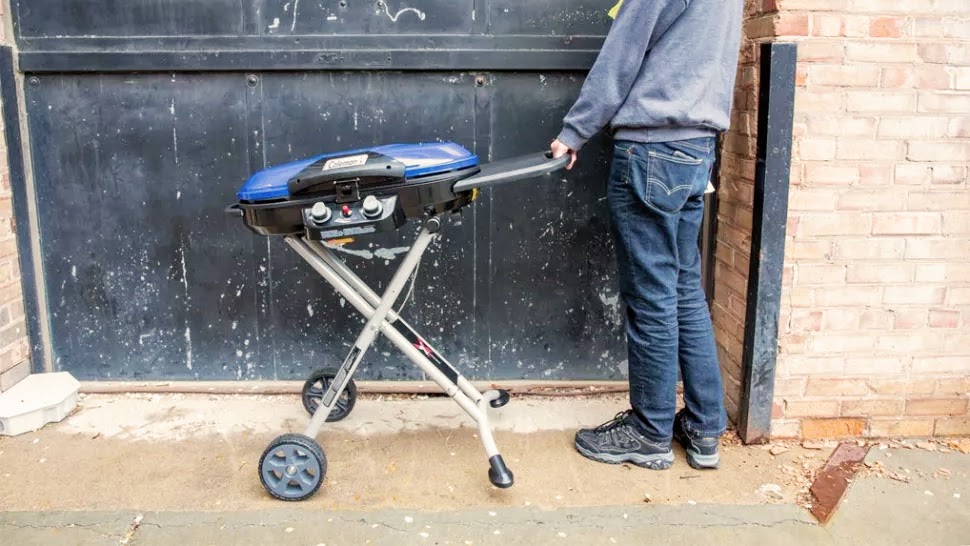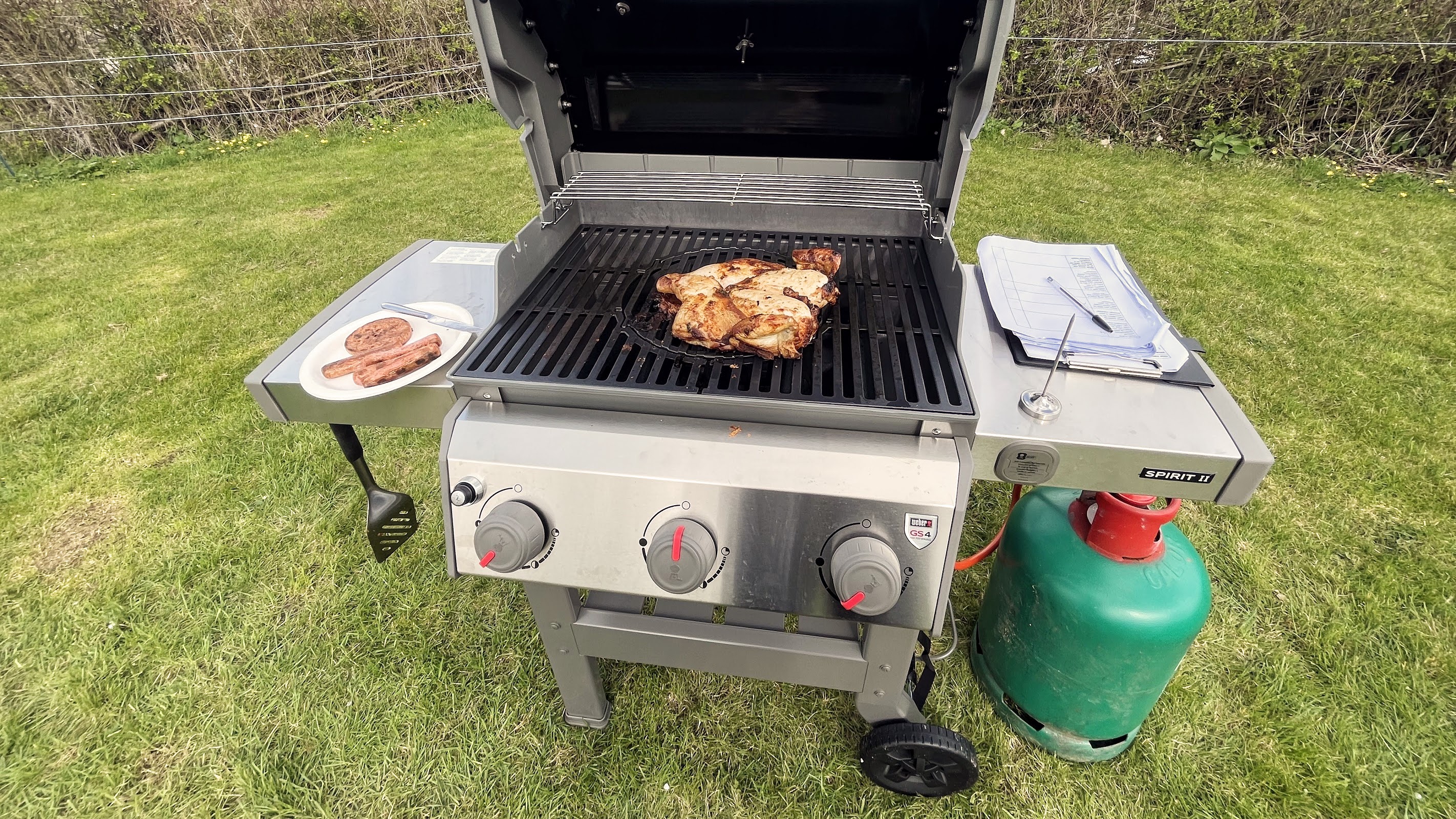
Now that winter is disappearing in the rear-view mirror, it’s almost time for some outdoor cooking. Nothing quite says summer like grilling up steaks, burgers and hot dogs on one of the best gas grills. But if you’re new to grilling — maybe you just moved into your first place and now you’re the de facto grill master of the house, or you’re getting your very first grill – you might be wondering, are gas grills really safe to use?
If used correctly and maintained regularly, gas grills are safe to use. By following advise from the manufacturer and these expert top tips you'll soon be smoking and searing with no cause for concern. Here's everything that you need to know.
Are gas grills safe to use?
Anything involving gas and fire is a bit intimidating. Especially if you’re connecting a big tank of propane to a gas grill you just assembled for the first time. According to the NFPA, 10,600 home fires are started by grills each year. Before you panic and think grills can’t possibly be safe, that number makes up less than .00007% of all homeowners who own grills (assuming 61% of homes have a grill according to the NFPA).
Simply put: grills are absolutely safe. A big portion regarding the safety of gas grills is how to properly operate and care for your gas grill. As long as your grill is properly built and maintained, and you know how to light a gas grill safely, you should have nothing to worry about. If you are new to grilling, or you just want to brush up on some proper grill maintenance practices, read on to ensure you have a safe grilling season this summer.
Read on for some (more) reassurance that gas grills are safe to use.

1. Check before you fire up
Whether you’ve just built your first new gas grill, or it’s the first opportunity you've has to light a gas grill after storing it for the winter, it’s a good idea to check all of your connections for gas leaks. To do this, simply mix a little water and dish soap in a bottle. Next, spray where the propane tank connects to the regulator, up and down the hose that connects to the grill, and where the hose connects to the grill. Turn on the propane. If you see any bubbles forming, you know that you have a gas leak, and that the leaking portion needs to be replaced before the grill is safe to use.
If this is the first time you’re using your grill after it’s been in storage, open the hood of the grill to ensure no insects or animals have made a nest in there. It’s not only unsanitary, but is also a fire hazard. Make sure your grill is clear of any debris before you start.
2. Beware of apron strings
Before you light the grill, make sure that any loose apron strings aren’t dangling inside or just above the grill surface. And certainly don’t lean over the grill when you’re lighting or working the grill. A flare up could potentially cause you to get burned if you’re too close to the grill.
3. Ignite the gas grill properly
“One of the most common mistakes I’ve seen in my years of grilling is someone turning on the propane and leaving the grill hood closed,” said Sucher. He continued, “then they open the hood and ignite the grill and a giant ball of flame ignites that can seriously burn someone.” To properly ignite a grill, turn on the propane and put the grill knobs to the it’s “lite” setting while leaving the hood open. Then press the ignite button (all newer gas grills will have this button). If the grill doesn’t ignite within a few seconds. Turn off the grill and propane. Let it air out for at least five minutes, and try again. If your igniter doesn't work, you can use a grill lighter to ignite the grill following the same steps.
4. Locate is safely away from structures
This also means don’t operate your grill inside your home or garage. But even if you are outside, make sure the grill is at least five feet away from structures like your home, or deck railings, and out from under any awnings or roof overhangs while in operation. “It’s not uncommon for a grill to flare up and have flames extend beyond the grill surface, especially when cooking fatty cuts of meat,” said Sucher. Keeping the grill in an open area ensures that flare ups don’t cause damage to the surrounding areas.
5. Stay with it
You wouldn’t turn your stove on and leave your house; treat your grill with the same amount of safety and concern. Once your grill is lit, stay around your grill to ensure that flares ups don’t cause any damage, or that your children or pets don’t wander over to the grill and hurt themselves.

6. Give the grill a regular maintenance check
“For proper grill health and longevity, you want to scrape your grates off after every use, and deep clean your grill at least once a year,” said Sucher. This means removing the grates, cleaning off the heat deflectors (the V-shaped plates above the burners), removing any ash, grease or gunk from the bottom of the grill, and ensuring all of the burner holes are free and clear of debris. You can easily clean your grill with a proper grill brush, a bucket or warm water and a rag.
FAQs
Should you leave the grill open or closed when grilling?
If lighting the grill, keep it open. No exceptions. After, you want to close it to preheat the grill. When cooking, it depends on how fast or slow you want to cook the food. A closed grill will heat up quicker and retain heat, while an open grill will cook food slower.
Can propane grills be left outside?
Yes. In fact, you shouldn’t store your propane tank indoors. Invest in a grill cover (prices start from $13.99 on Amazon) to keep your grill and tank protected during the winter while your grill and tank are outside.
Where should a gas grill be placed in the backyard?
It is best to keep your grill on a flat and even surface, especially when grilling. Make sure the surrounding area is clean as well, free of children’s toys or anything else you, or someone else may trip over. Also keep it away from structures like homes, overhanging tree limbs or deck handrails as well.







